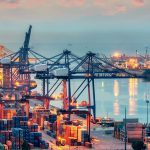WASHINGTON, D.C.: Former U.S. President Donald Trump has voiced sharp disapproval of Apple’s plans to expand manufacturing in India, warning the tech giant that products made overseas—particularly iPhones—will be subject to a 25% tariff if sold in the United States.
Speaking from the Oval Office during the signing of executive orders on nuclear energy, Trump said he had previously reached an “understanding” with Apple CEO Tim Cook that manufacturing would remain in the U.S. “He said he’s going to India to build plants. I said, ‘That’s okay, but you’re not going to sell into here without tariffs,’” Trump stated.
He emphasized that the tariffs would apply broadly, not just to Apple, but to all smartphone makers, including Samsung and Huawei. “If they’re going to sell in America, I want them built in America. Otherwise, it wouldn’t be fair,” he added. The proposed tariffs are expected to take effect by the end of June 2025.
Trump also reiterated his position on social media, posting:
“I expect their iPhones that will be sold in the United States of America will be manufactured and built in the United States, not India, or anyplace else. If that is not the case, a Tariff of at least 25 percent must be paid by Apple to the US. American jobs come first!”
During a recent trip to Doha, Trump said he had urged Cook to prioritize U.S. production, pointing to India’s high tariffs, which he claimed make the country a challenging market for American businesses. “They offered us a deal with no tariff, but I told Tim, ‘I don’t want you building in India. Build here,’” Trump recalled.
Apple CEO Tim Cook addressed the issue during the company’s Q2 2025 earnings call, saying that tariffs are determined by where products are made. Industry experts, however, caution that shifting iPhone production to the U.S. could lead to steep cost increases due to higher labor and operational expenses. Analysts estimate iPhones could cost over $3,000 if U.S.-made, potentially dampening consumer demand.
Economists are divided on Trump’s tariff threat. Critics argue it may raise prices and disrupt global supply chains, while supporters claim it could spur job growth and manufacturing in the U.S. The White House has yet to provide details on how the tariffs would be enforced or whether exemptions would be granted for companies investing in American production facilities.
In related news, Apple CEO Tim Cook reportedly declined an invitation to join other tech executives on Trump’s recent Middle East trip—a move that reportedly did not sit well with the former president, according to The New York Times.






